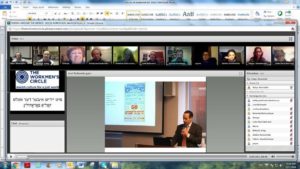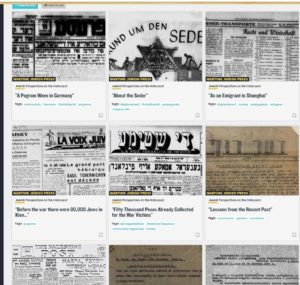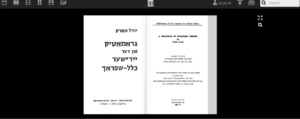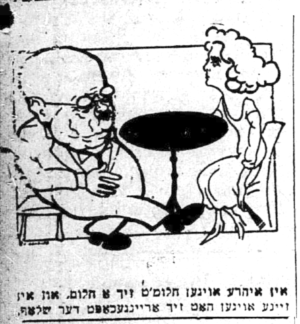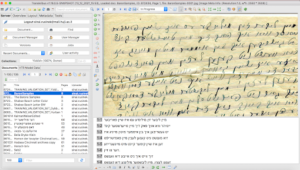Pedagogy
Reflections on the teaching and learning of Yiddish, as well as downloadable guides, exercises, and lesson plans to use in the classroom.
Pedagogy
Teaching Yiddish in the Digital Age
Pedagogy
Experiencing History: Jewish Perspectives on the Holocaust
In November 2016, the United States Holocaust Memorial Museum launched the beta version of Experiencing History: Jewish Perspectives on the Holocaust, a primary-source teaching tool that aims to bring Jewish sources from the Holocaust to the North American undergraduate classroom. Emil Kerenji describes the tool and how it can be used.
Oct 10, 2017
Pedagogy
Teaching Yiddish (Language, Culture, History, etc.) Online: Call for Submissions
Universities around the globe have closed their campuses and many of our readers are shifting their courses online. In geveb is seeking best practices, advice, lesson plans, asynchronous assignments, descriptions of why and how you use particular digital tools and resources, personal essays, and more.
Mar 18, 2020
Pedagogy
The Promises and Frustrations of Yiddish Studies Research during a Time of Quarantine: A Case Study
This essay is a companion piece to my article, “Freidus, Borokhov, and the Café Royal.” Baker explains the research methods behind the article, assessing the rewards and pitfalls of researching using exclusively on what is available online and the resources he has in his home, during the coronavirus pandemic.
Mar 04, 2021
Pedagogy
The DYBBUK Model: A New Yiddish Handwriting Text Recognition Tool
Yiddish researchers are training Transkribus, a cutting-edge digital platform for the transcription, automatic text detection, and enrichment of handwritten archival documents, to decipher Yiddish-language handwriting, which will facilitate and boost research into hidden treasure troves, rich in Jewish cultural heritage.
Feb 07, 2022

